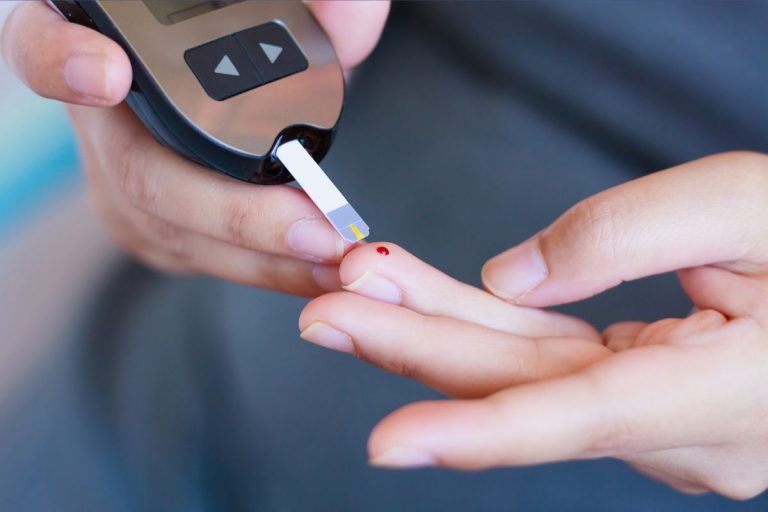If you’ve read Tim Ferriss Tools of Titans, or seen even a few of his podcasts, you would know that he strongly advocates using an apple cider vinegar mixture for hastening sleep onset and improving sleep quality.
Is there any merit to using his new agey sleep potion?
According to Tim, he picked up this practice on the recommendation of Seth Roberts, Ph.D., a professor of psychology, but also a prolific self-experimenter and body hacker who had significant renown amongst that crowd.
However, the use of apple cider vinegar in potions for accentuating health dates much further back than both proponents of the idea.
Like honey, Apple cider vinegar is one of those “wonder” foods (a spot more recently occupied by the likes of coconut oil and MCT oil) that have featured in both medicinal and culinary recommendations for hundreds of years. Advocates of its use claim its effectiveness in everything from easing congestion to lowering blood sugar, supporting weight loss, improving skin tone, and even acting as a natural breath freshener.
For the scope of this article, we will focus on the assertion that apple cider vinegar can improve sleep, checking to see if it holds any merit.
Apple Cider Vinegar for Sleep: Fact or Fiction
If you are reading this article, the chances are that you have read some user reviews that tout the sleep-inducing effect of apple cider vinegar recipes, and how these potions have cured or at least reduced their insomnia.
There is no shortage of such testimonials in blogs and online forums.
However, if you continue to search for more information on the efficacy of this hack, you will encounter one major problem—an absence of scientific research backing. This is a significant problem.
The crux of the matter is that there are no comprehensive studies into the effect of apple cider vinegar on sleep. There is a minimal scientific understanding of why such an outcome would occur in the first place.
One take on a possible explanation suggests that the acetic acid content of apple cider vinegar aids digestion by helping to hasten the breakdown of protein-rich foods. This digestive process, in turn, produces amino acids like tryptophan, which can enhance the production of hormones like serotonin and melatonin that induce and improve sleep.
While this idea may sound robust in theory, in reality, it is reaching and an oversimplification at best. Plus, there is no scientific basis backing this claim.
In his video, Tim Ferris recommends the apple cider+honey recipe for sleep, admits to not understanding the underlying mechanism that creates the sedative effects. However, he swears by its potency, claiming that the formula “knocks him out in minutes.”
Seth Roberts, Ph.D. — who recommended the recipe to Tim — detailed in a blog why he thinks it works. However, his theory focused more on the effects of honey than those of apple cider vinegar.
Seth proposed that one of the main disruptors of sleep is low blood sugar.
During sleep, the brain, our most energy-intensive organ, is on overdrive, and the brain runs on glucose. Consequently, having low blood sugar during the night can lead to awakenings or nonrestorative sleep.
Seth believed that a sugar-rich mixture of apple cider vinegar and honey provides a condensed supply of glucose that can match the brain’s needs during the night and help ensure better sleep.
According to one study by the Australian Government, different varieties of honey have different glycemic indexes, and as such, they can have varying effects on blood glucose and insulin levels.
Hence, if you decide to carry on with this recipe, consider trying different types of honey to find the one that works for you.
However, the truth remains that while there are several vaguely possible explanations for why this recipe may work, and there is an abundance of anecdotal reports that support the claim that it does, there is no solid scientific backing to any of these theories.
So, does apple cider vinegar work for sleep?
There is no definite research-backed answer. However, if we consider anecdotal reports, a significant portion of respondents praise the efficacy of these recipes.
Nevertheless, many others found that it had no effect, or even produced adverse results like heartburn, acid reflux, and stomach trouble (while others claimed that it helped ease existing cases of acid reflux and heartburn.)
Should You Take Apple Cider Vinegar for Sleep?
Like with many home remedies, taking apple cider vinegar to enhance sleep is one of those cures that works perfectly for some, and creates the opposite effect in others.
Hence, if you are searching for natural ways to cure insomnia and improve your sleep, there is no harm in trying it out. Apple cider vinegar is food-safe and is a standard recipe item in many culinary and medicinal formulas.
However, if you are trying this home remedy, start in small portions (see if it works for you or if it creates any adverse effects) and preferably use the Tim Ferriss method.
The Tim Ferriss Method:
- Add two spoonfuls of apple cider vinegar to a cup of hot water
- Add a tablespoon of honey
- Stir the mixture and allow it cool to a temperature you are comfortable drinking
- Drink the formula just before hitting the sack.
However, keep in mind that apple cider vinegar has much acidic content. Hence, it is best if you avoid consuming large amounts, especially on your first few tries.
Consuming sizable quantities of apple cider vinegar (especially undiluted) can cause a series of problems, including possible damage to stomach lining and the esophagus. To minimize any potential harm, restrict your apple cider vinegar intake at any one time to two tablespoons.
We recommend that you take care to ease into apple cider vinegar use gradually. If you consider yourself having a particularly sensitive digestive system, start with meager amounts like half a tablespoon to see if you can stomach it.
Overconsumption of apple cider vinegar, or an adverse reaction to the solution, can cause several different uncomfortable or even harmful side effects. So, consider adhering to our recommended safety measures.
Potential Side Effects
Tooth Damage
One of the most significant risk factors that come with the regular use of apple cider vinegar is potential tooth damage.
Apple cider vinegar has a pH of about 2-3, a higher acidity than that of most foods we regularly consume. According to available research, regular exposure to such acidic substances can erode your enamel, damaging your teeth.
To mitigate the impact of apple cider vinegar on your tooth enamel, in addition to only taking in small amounts, consider rinsing your mouth immediately after consuming the solution.
Indigestion and Acid Reflux
In some people, acidic foods and drinks can mess with their digestion, causing indigestion and sometimes even acid reflux. Most people won’t have this reaction, but for those that do, they should interpret it as a sign of some apple cider vinegar intolerance.
Consider reducing the portion sizes of apple cider vinegar you consume, and if the reaction persists, desist from ingesting the solution altogether.
Nausea
Another purported benefit of apple cider vinegar use is for weight loss. While the use of apple cider vinegar for weight loss is a common thread in many fitness communities and local traditions, research shows that its seeming weight loss effects stem from an unlikely source.
In one randomized controlled trial, researchers concluded that the appetite-suppressing effects stem from the poor tolerability many folks have following ingestion and the feelings of nausea it invokes.
If you feel the urge to vomit after consuming apple cider vinegar, consider reducing your portions or quitting its use altogether.
Mineral Depletion
Another commonly touted possible side effect of apple cider vinegar use is the lowering of potassium levels in the blood.
However, the research into this subject is quite limited. The only supporting study we could find covered only a single subject and the subject ingested large amounts (8 ounces) of apple cider vinegar daily over six years. The patient ended up in a hospital with low potassium levels, amongst other issues.
While a minor dosage of apple cider vinegar is unlikely to cause any severe potassium depletion, this effect may combine with other medications, which also reduce blood potassium levels like diuretics and metformin possibly put you at risk.
Other potential side effects of the use of apple cider vinegar include:
- Stomach upset
- Throat irritation
- Aggravation of ulcer symptoms
- Constipation
FAQs on Apple Cider and Sleep
Q: Why do I get tired when I take apple cider vinegar?
Due to the acidic nature of apple cider vinegar, consuming it can lead to a lower blood potassium level, which can cause several side effects, including fatigue.
Q: How much apple cider vinegar can I safely consume daily?
Keep apple cider vinegar consumption to a minimum. It’s best to top out your daily intake at one or two tablespoons and remember to dilute it with water, or a sweetener like honey to reduce its corrosive effect.





